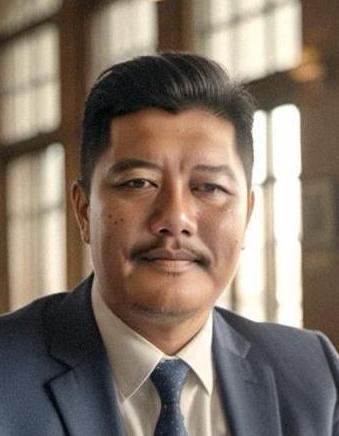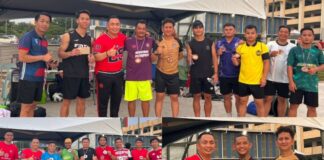KOTA KINABALU: All eyes will now be on Prime Minister Datuk Seri Anwar Ibrahim’s remarks regarding the implementation of the Madani Village Community Committee (JKDM) in Sabah during his visit to the state on May 31.
The Prime Minister is set to officiate the National Level Kaamatan Festival at Hongkod Koisaan KDCA Penampang on that day.
Sabah’s Deputy Chief Minister Datuk Seri Dr Jeffrey Kitingan stressed that the state government leaders will convey their opposition to the implementation of JKDM Madani in Sabah during the visit.
Jeffrey highlighted that Sabah already has the Village Development and Security Committee (JKKK) in place, making the JKDM initiative under the Ministry of Rural Development and Regional Development (KKDW) unnecessary.
On the other hand, Sabah UMNO chief Datuk Seri Bung Moktar Radin defended the establishment of JKDM in the state, emphasizing its role in coordinating programs to boost the economy and entrepreneurship of village residents to alleviate hardcore poverty in Sabah.
Remy Majangkim, an impartial political analyst, highlighted the potential challenge the Prime Minister could face in preserving political balance or level playing field particularly in light of the forthcoming state elections.
This is due to the fact that the Unity government at the Federal level, led by Anwar, includes parties from Sabah such as GRS, UMNO:BN Sabah, Warisan, KDM, and independent members of parliament.
Remy highlighted that the state government administration in Sabah is currently headed by GRS Plus PH.
It is worth noting that PH played a crucial role in rescuing the GRS government from the brink of collapse during the political turmoil that occurred in the state last year, he said.
According to Remy, after the establishment of the GRS Plus PH state government, the positions of Village Chiefs and JKKK in most constituencies are still “monopolised” by GRS supporters, while supporters of Warisan, KDM, UMNO/BN (except supperters of the UMNO/BN assemblymen who joined Parti Gagasan Rakyat Sabah) were dismissed.
“At the Federal level, the relationship between the component parties of the Unity government is very good.
“Similarly, the relationship between GRS and PH at the state level is also very good, but in Sabah, UMNO/BN Sabah, Warisan, and KDM are sidelined, but still, the GRS government seemed threatened by the establishment of JKDM and opposes its implementation… this is the uniquiness of the Sabah ‘s political landscape ,” he said.
Based on history, he said the clash of political parties at the state level in Sabah is not something new, even though they are all members of the Federal ruling party.
For example, in the 1980s, after PBS formed the government, both the PBS government and the opposition Usno were allies at the federal level and supporters of the BN government but clashed with each other in state elections at that time.
Remy said the same scenario might occur in the upcoming state elections in Sabah.
“Based on news reports, UMNO Sabah is ready to cooperate with other parties including Warisan, KDM, and PBRS, while PH will make a decision on this matter after the State Assembly is dissolved to face GRS in the elections.
“The political scenario in Sabah becomes even more complicated when component parties of GRS also belong to the Perikatan Nasional PN),” he said.
Remy said the burning question now is whether the JKDM in each Sabah constituency, half of which has already been implemented, will create a level playing field in Sabah’s political arena.
“Let’s wait for what the Prime Minister has to say on May 31… I expect the Prime Minister to try not to hurt the feelings of both sides.. a win-win situation,” he said.


